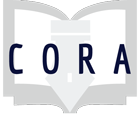This activity is designed to support teaching at the intersections of scholarly communication and information literacy. The choose-your-own scenario activity, designed in LibWizard, can be used in a flipped classroom setting or in a traditional classroom. The choose-your-own scenario activity is inspired by and adapts questions from: Hare, S. & Evanson, C. (2018). Information privilege outreach for undergraduate students. College and Research Libraries.
Assignments
This lesson was co-developed by Daniel Ransom and Nicole Branch. This is an intensive APA workshop that could be broken into parts. It covers both APA citation and formatting, with a protest theme. The workshop was conducted as a stand-alone, outside of class workshop at Holy Names University in 2014 and 2015. Though Occupy is now dated, the theme of protest could be adapted to something more current. We didn't think it would be possible to make APA citation engaging, but this lesson did just that. It was especially popular with nursing and education students.
This lesson was developed for a Photography course on the theory and psychology of photography (non-majors and majors both take this course). This lesson is typically presented at the beginning of a course section on the aesthetics of photography. It was meant to challenge their assumptions about art, information (online) as a commodity, and copyright practices of artists. Students may be asked to look up Richard Prince before class or during, as the lesson suggests.
This activity introduces students to a variety of databases in their discipline by asking them to quickly review and prepare an “elevator speech” on the database’s best features and content. Students then do three rounds of “speed dating” to share with other students what they’ve discovered.
This activity is intended to introduce students to business resources by following the Porter's 5 Forces. Each Force is its own activity with suggested discussion questions, examples and recommended research approach.
During this activity, students work in small groups to explore assigned databases and then share back what they learn in a Google Doc projected at the front of the classroom.
A general sample of how to set up the information literacy workshop in an escape room model.
Students often struggle developing good research questions. This rubric is used to assess research questions. Students are given a brief lesson on developing a research question that includes a video produced by the University of Cincinnati.
https://www.youtube.com/watch?v=8aYA1ooRce8&index=5&list=PLSWTn4sCw1ZN1B...
This lesson is intended as a single session within a major’s research methods course. Rather than using a shorter “scholarly vs. non-scholarly” comparison worksheet, this activity asks students to work in groups to systematically examine a scholarly article in depth, identify and evaluate its various components visually and in writing, and then compare it to a non-scholarly article on the same topic. Groups then report back to the entire class.
In this lesson students view a series of short videos about searching library resources, interspersed with exercises in which they conduct searches on their topics and reflect on what they find and on the research process. (The first two videos and accompanying activities are done outside of class; the third can be done in class.)
